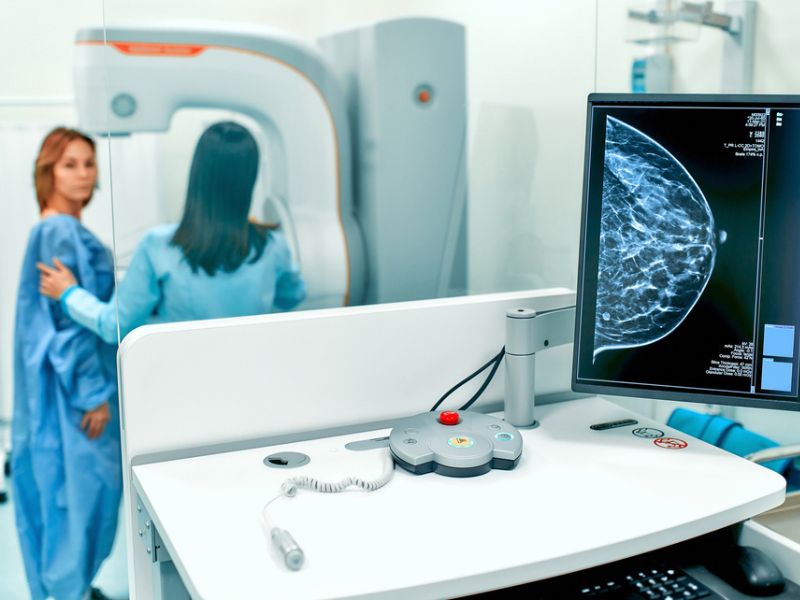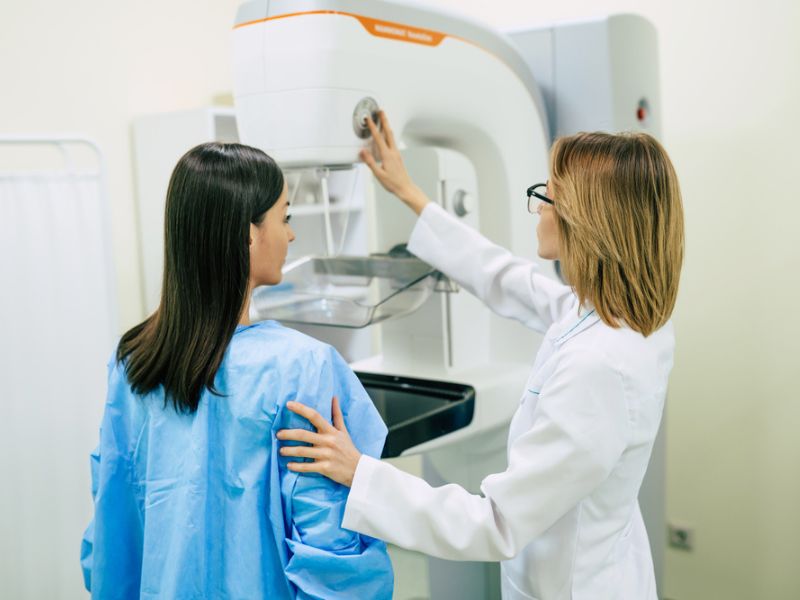A new commercial mammogram will use Google’s AI algorithms to screen breast cancer. A medical technology company that provides breast cancer detection services to healthcare facilities worldwide licensed the company’s AI technology on November 28.
In addition to incorporating AI-based strategies, iCAD will now include Google’s algorithm, which Google has been testing with Northwestern University researchers. Greg Corrado, co-founder of the Google Brain team and principal scientist, said, “It’s an inflection point for us. We’re moving from academic research to real-world deployment.”

Image Credit: Shutterstock/Orion Production
Earlier in 2020, Google’s algorithm for mammogram reading performed better than radiologists, logging fewer false positives and false negatives.
For the first time, iCAD’s services will be available to 7,500 mammography facilities globally. Corrado did not elaborate on how Google’s algorithm differs from others being tested but said it uses images beyond breast tissue to refine the machine learning process. iCAD and Google will refine the technology together as part of the partnership.
Radiologists won’t be replaced by the algorithm anytime soon. Stacey Stevens, president, and CEO of iCAD, says the technology could relieve radiologists’ burden in Europe, where two readings are required for mammography. As part of its efforts to earn authorization, iCAD is working with health regulators to incorporate AI-based interpretation into healthcare. Stevens expects the first product, including Google’s algorithm, to roll out in early 2024 in the U.S.

Image Credit: Shutterstock/Olha Povozniuk
Machine learning algorithms better detect the minor differences between cancerous and normal tissue, with more mammogram data feeding into them. It may ultimately be possible to spot patterns human eyes cannot. According to Stevens, iCAD’s current AI-based algorithm detects minute calcifications in breast tissue linked to a higher heart attack and stroke risk.
AI could improve how women are diagnosed with breast cancer by adding an AI perspective to mammograms. Using AI, racial and ethnic groups can be distinguished better; African-American women, for example, are more likely to develop aggressive breast cancers and die of them. Training an AI system to identify these cancers’ first signs could improve outcomes.